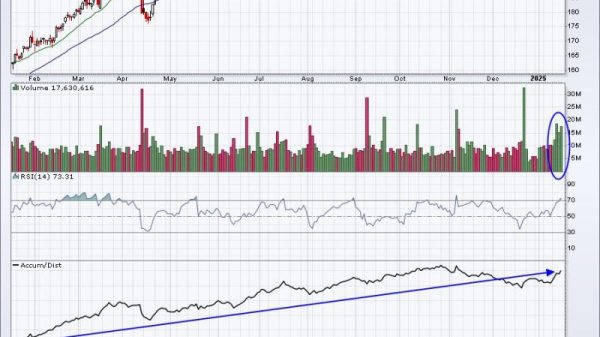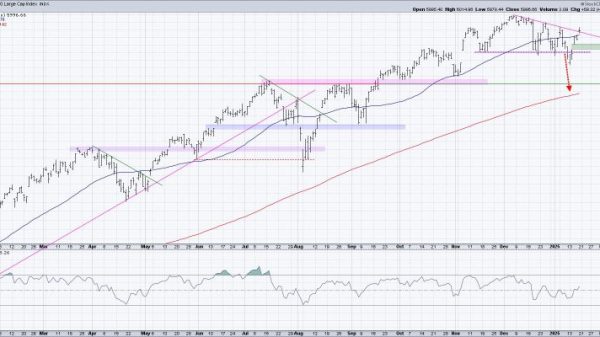Wireless providers including T-Mobile, AT&T and Verizon have faced a string of lawsuits in recent years from women who allege retail employees stole intimate images or videos from their phones while helping them with in-store data transfers.
The cases are routinely dismissed when the companies argue they weren’t aware of the staffer’s actions and aren’t liable because the employees were acting outside the scope of their duties. But that could soon change after a recent court ruling, legal experts told CNBC.
Now, the companies — not just the store workers — could face liability in future litigation, which could lead them to address the hiring, training and data safety practices that victims argue led to the violations, the experts said.
The latest lawsuit against AT&T was filed Monday in California state court. A woman identified as Jane Doe alleged that an employee at a Los Angeles store stole her nude images and distributed them in February after she upgraded her iPhone and he helped her with transferring her data.
That case, filed by attorneys from the C.A. Goldberg law firm, now has a better chance of surviving and making it to trial after an April court ruling against T-Mobile involving a similar incident in Washington that was brought by the same law firm. Judge Stanley Bastian, the judge overseeing the T-Mobile case, ruled it could move forward after the company sought to have the lawsuit dismissed.
T-Mobile, like other phone carriers, had argued it wasn’t aware of the employee’s actions and said he was acting outside the scope of his duties. But the judge decided the company could potentially be liable and ruled the case should proceed.
The ruling, described by the law firm as a “landmark” decision, is the first of its kind against a wireless carrier accused of negligence for hiring employees alleged to have stolen sensitive customer data, the firm said. It could affect the fate of future cases, including the lawsuit filed against AT&T on Monday, legal experts said.
“That decision sets important precedent and we intend to continue to try to hold phone companies accountable for situations like this where their employees violate customer privacy during phone trade-ins or other transactions at the stores,” said Laura Hecht-Felella from C.A. Goldberg, one of the lead attorneys behind both the T-Mobile and the new AT&T case. “There’s a lot of different ways in which they can try to prevent this from happening and it’s clear whatever they’re currently doing is not adequate.”
Carrie Goldberg, the firm’s founder, added that the “hope really is not to attract more cases” but to encourage the companies to have better safeguards in place.
“That’s what litigation does. It says you can be held responsible for your negligence,” said Goldberg. “And presumably that will induce the phone companies to innovate on their safety and privacy protections for consumers at their stores.”
AT&T did not immediately respond to a request to comment. T-Mobile declined to comment.
In the case against AT&T, the woman filed a police report, which remains under investigation, according to the lawsuit.
At least six other similar accusations have been levied against AT&T in the past either in civil lawsuits or police reports, according to the complaint. The dispositions of those cases are unclear. The cases mirror at least a dozen more alleged to have happened at other providers, such as T-Mobile and Verizon, according to news reports.
Goldberg says she suspects the cases that have been made public are “just the tip of the iceberg,” and there are likely more that customers never detected.
“We suspect that the phenomenon of theft at cellular phone stores is bigger than we can comprehend,” said Goldberg.
“As a society, we trust these cellular providers with all of our most private information,” said Goldberg. “And really there’s no limit to what their employees can steal off of our phones and then share with the world.”
She added that her firm has received “case after case after case” where customers allege phone store employees stole their data. Goldberg said the issue cuts across companies, making it an “industry-wide” concern.
Andrew Stengel, a New York attorney who specializes in cases involving the nonconsensual disclosure of intimate images, better known as revenge porn, reviewed the T-Mobile Washington decision for CNBC. He said future cases, such as the AT&T lawsuit, now have a better chance of surviving motions to dismiss and progressing because the attorneys will be able to point to that precedent in their arguments.
“It should make judges think twice or three times before they dismiss a claim,” said Stengel, who has brought a similar case against T-Mobile in the past but isn’t involved in the current litigation. “It should be able to give judges not only pause, but ammunition to agree.”
If lawsuits against wireless carriers related to the theft of intimate images are allowed to proceed, they move into discovery, which Stengel likened to the “crown jewels” of a legal case.
During discovery, defendants are required to turn over documents that are relevant to the case, which could reveal damning and implicating information.
“There could be information that the cell phone companies would be required to disclose that will increase liability in the future,” said Stengel. “If I were their attorney, I’d be very concerned about that.”
Stengel cautioned that while the Washington decision may be “exciting,” it’s not binding and judges in other jurisdictions can choose to ignore it.
Still, Goldberg expects the decision to be “influential.” She said it could impel phone companies to finally make changes to prevent these sorts of abuses.
“We think that the cellular providers are going to be a lot less arrogant about what they can get away with,” said Goldberg. “If you’re a company that is consistently hiring rando pervs that steal consumers’ most private, intimate pictures, then, it’s the company’s fault.”


































